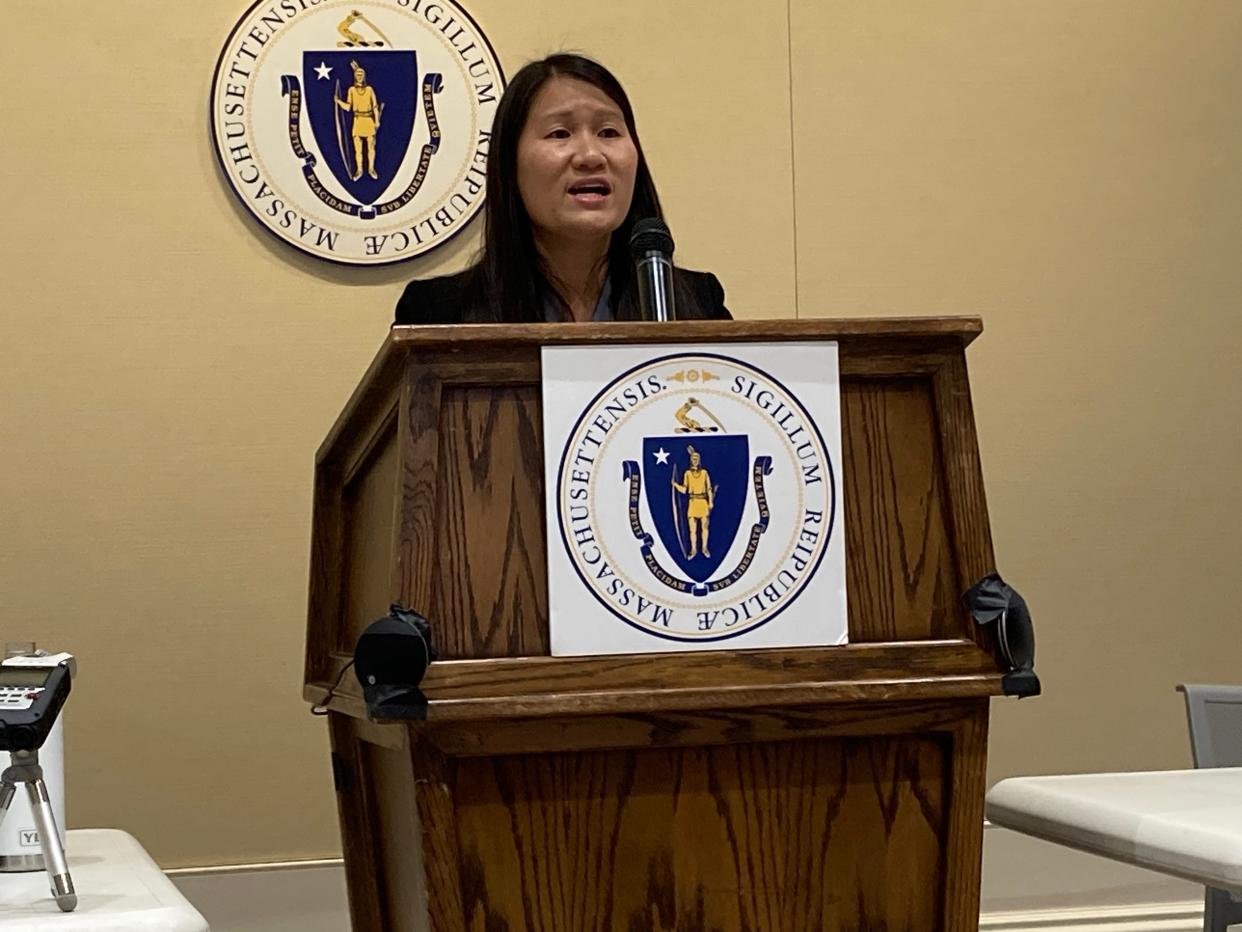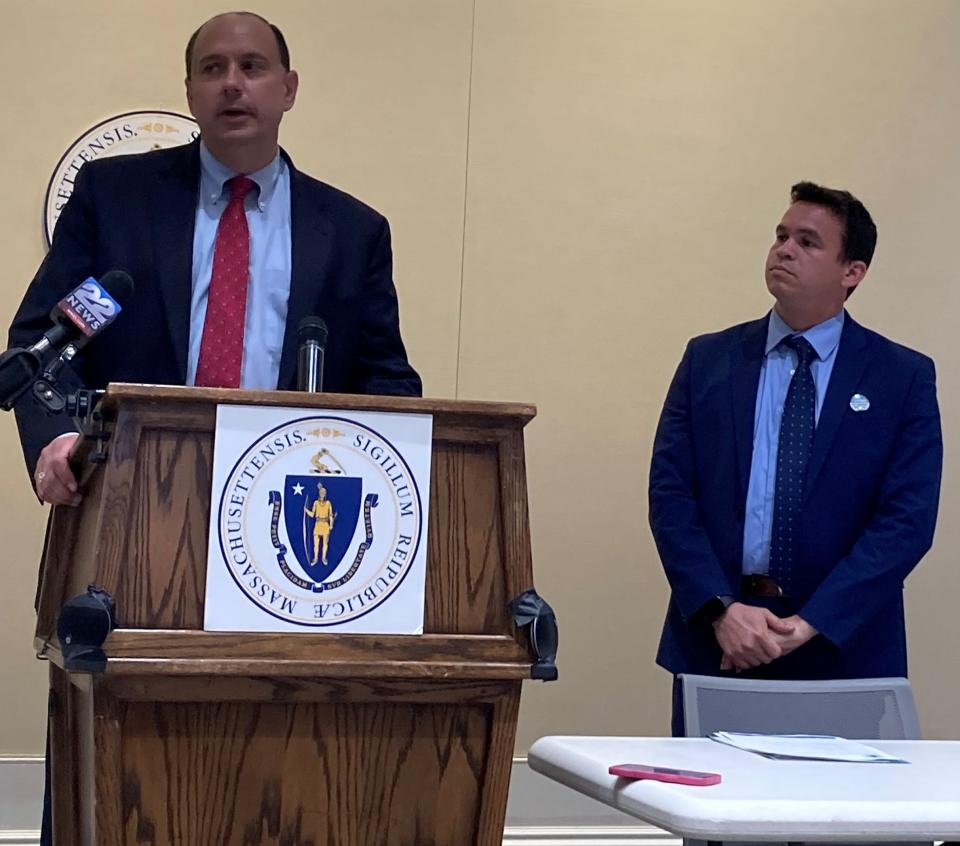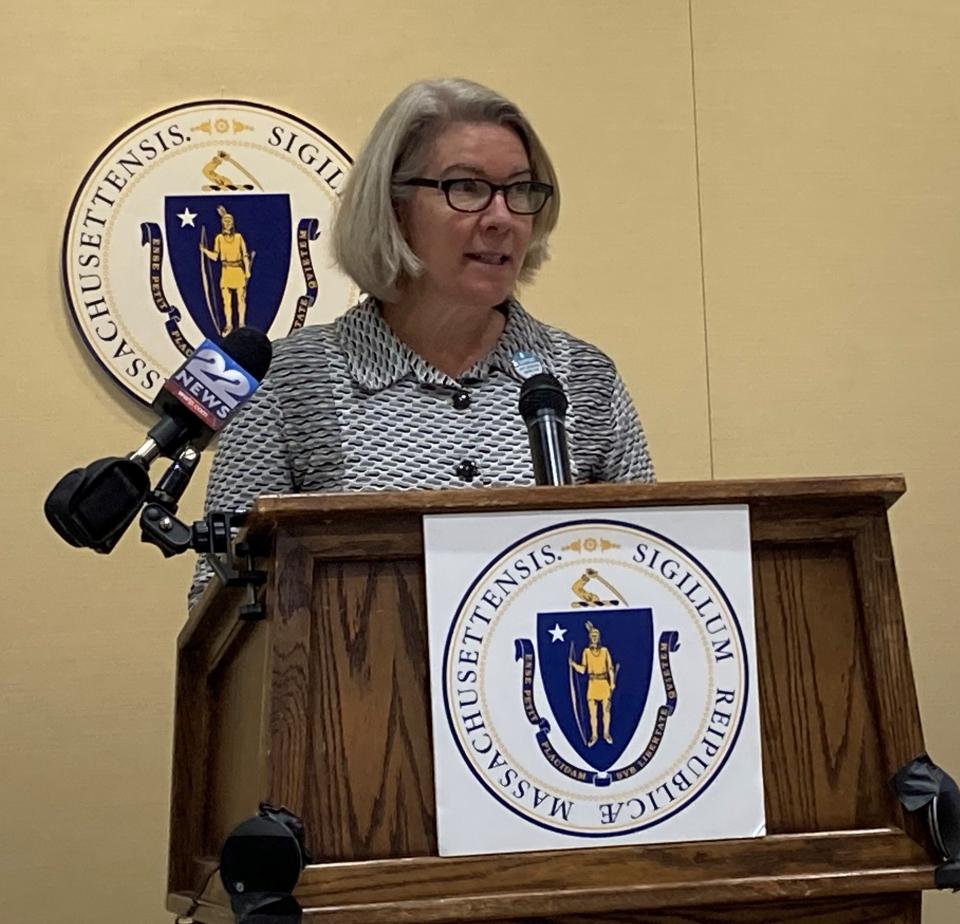Mass. could require testing private well water with real estate transfers

Everyone agrees that all Massachusetts residents deserve access to clean water when they turn on their taps. Yet people living in the state’s rural reaches may not get what they deserve from their faucets.
Even as the state tests public water supplies routinely to ensure safety for drinking, the testing of private wells — the water supply for about half a million residents, many of them young children — lags.
“Massachusetts has high standards for public water, but private wells are being left behind,” said Dr. Amie Shei, president and CEO of The Health Foundation of Central Massachusetts.
Shei and her organization participated in an information session Wednesday presenting the results of a series of surveys and testing initiatives done to determine the health of the state’s well water and support proposed legislation requiring routine testing.
Legislators said the proposed legislation, scheduled for a hearing next week before the Joint Committee on Environment and Natural Resources, would establish supports for sampling the waters and enact requirements that private wells be tested when real estate is transferred between owners.
“The bill is so simple. The bill is so important,” said Rep. Danillo Sena, D-Acton, co-sponsor with Sen. Jamie Eldridge, D-Acton, and Rep. William “Smitty” Pignatelli, D-Lenox.

In addition to authorizing the state to develop regulations and guidelines for testing, the bill proposes the expansion of the MassHousing Septic Repair Loan Program to include well testing. This fund provides 0-to-2% interest loans to low-income residents to mitigate septic issues and could be expanded to include private wells.
Testing for pollutants, PFAS
The measure would encourage yearly testing of private wells to seek out the presence of common pollutants as well as substances associated with bacterial and chemical impurities. Wells would also be tested for PFAS, perfluoroalkyl and polyfluoroalkyl substances that are used in a variety of household products and industrial processes.
The Coalition for Safe Drinking Water, working with RCAP Solutions and The Health Foundation of Central Massachusetts among others, conducted testing and surveys to determine the condition of private wells in Massachusetts. Of 501 wells sampled, 32% harbored contaminants that exceed state health standards while 5% had PFAS levels that also exceeded state health standards.
Massachusetts regulates septic systems, requiring they be inspected when property titles are transferred, but it does not require testing of well water at the same time.
Research indicates that while many homeowners who rely on well water praise the taste and quality of their water, few — about one out of every five — test routinely on a yearly basis. Some homeowners were unaware of the last time they had their wells tested. Others had never tested in the years they had lived in their homes.

Dr. Kim Dash, a research scientist with Education Development Center in Waltham, the organization that worked with RCAP Solutions to test the 500-plus wells, said the group had many responses like, “We’ve lived here a long time and no one ever got sick so the water must be clean,” when they queried homeowners about the quality of their well water. The perception that drinking well water carries little risk, coupled with the perceived high cost of testing and remediation, serves as a brake for testing, Dash said.
But of the 500 wells tested, 31% exceeded the state Department of Environmental Protection limits for arsenic, E. coli, radon, nitrates, uranium and manganese — all substances that affect health. Once contaminants are found, homeowners are eager to remediate the problem.
Homeowners in 18% of cases where contaminants were found paid to remediate the problem. Another 35% said they would budget for it in the future, said Dash, adding most of the participants were in favor of state regulations for private wells.
Surprisingly, even while Massachusetts residents believe the state is responsible for the cleanliness and safety of the water supply, many don’t trust their water. When asked, 51% of renters said they resort to drinking bottled water and 43% of homeowners drink filtered tap water. Only 39% of residents drink straight from the tap.
Robert Durand, a former legislator and now president of Durand & Anastas Environmental Strategies, said 60% of survey respondents don’t trust the drinking water, despite constant testing and newsletters issued by the Massachusetts Water Resource Authority.
“It’s the state’s obligation to know what people are drinking,” Durand said, adding that the consumption of water in single-use plastic bottles may decline if residents knew what was in their water and trusted the supply.
This article originally appeared on Telegram & Gazette: Massachusetts law makers file bills regulating private well water

